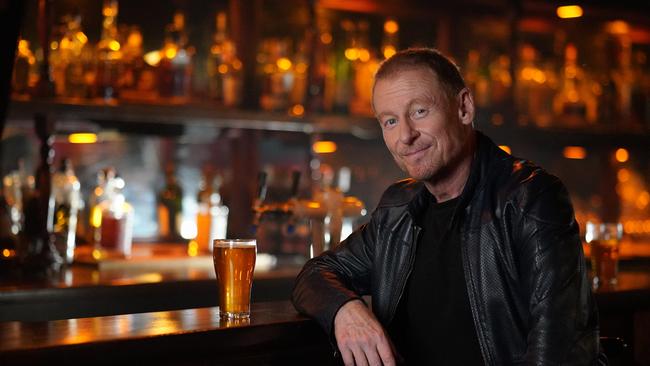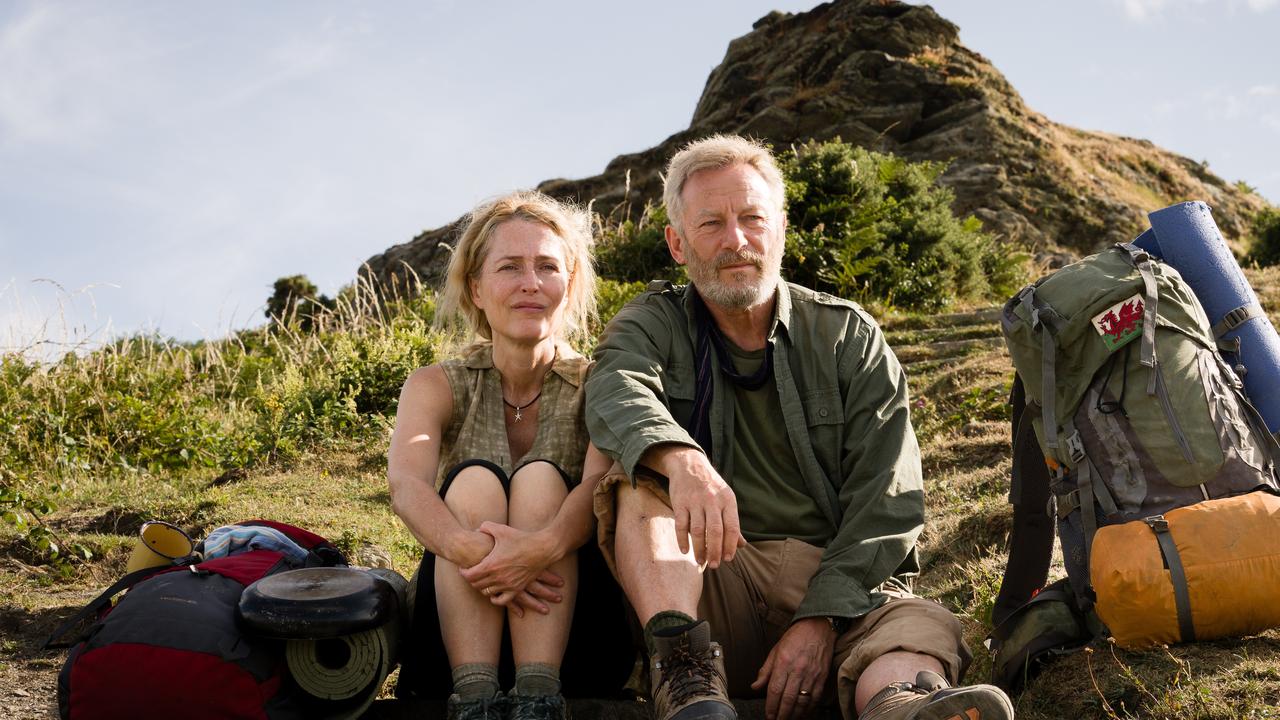Science of Drugs exposes the dangerous lethality of our favourite social lubricants
While alcohol can be a social glue, its neurotoxic effects are frightening. This new show unpacks the science.

“O God, that men should put an enemy in their mouths to steal away their brains,” Shakespeare wrote in Othello about the dangers of the demon drink. Edgar Allan Poe was just as appalled by his addiction to alcohol: “I have absolutely no pleasure in the stimulants in which I sometimes so madly indulge. It has not been in the pursuit of pleasure that I have perilled life and reputation and reason. It has been the desperate attempt to escape from torturing memories, from a sense of insupportable loneliness and a dread of some strange impending doom.”
Are all common recreational drugs, such as booze, equally harmful, or are there benefits to be enjoyed from indulging in them?
This is the focus of the rather ungainly titled Science of Drugs with Richard Roxburgh, with the tag line “Drug science, without the politics”.
It’s an interesting approach, given that politics really determine which substances are defined as drugs, how their supply and use are regulated, the cost of criminalisation, the failure of so many rehabilitation strategies, the direction of the so-called “war on drugs” and, of course, how society responds to people who use illicit substances.
The four-part series is from Wildbear Entertainment among whose fine productions are Sally Aitkin’s Playing with Sharks: The Valerie Taylor Story and Kriv Stenders’ Brock: Over the Top. Executive producers are the experienced Alan Erson, a veteran of high-quality science, history and natural history programming for global audiences, his credits including Getting Frank Gehry, Why Anzac with Sam Neill and Todd Sampson’s Body Hack.
Kate Pappas is the other executive producer, having produced more than 50 hours of television with Australia’s leading factual production houses, her shows also including Playing With Sharks.
Anja Taylor is the series writer and director and she has also been creatively responsible for many hours of factual programming. Her stories have taken her cave diving in the Nullarbor, chasing great whites, exploring war submarines in Turkey, and jumping into the icy waters of Antarctica.
Science of Drugs attempts to reset the balance of public debate about substance use, Taylor says, and look at the way science is so often a mismatch with drug policy.
She wants to unpack the science behind the most commonly used drugs – from the legal and lethal to hard narcotics. What are the risks? Which drugs really do the most harm? And can some offer a unique healing window? Each episode examines the history of drugs, their chemistry, biology, acute effects, long-term harms and even benefits from a supposedly neutral perspective.
Roxburgh is the show’s host, one of our great actors, most celebrated, and rightly so, for his brilliantly laconic performance in Rake as the emotionally and often physically bruised Sydney barrister Cleaver Greene. He was coy, vain, pompous, conniving, seductive and had tantrums; he appealed for sympathy, resorted to shrill wailings savouring of self-indulgence. He was very funny. And he also enjoyed, frequently, the odd illicit substance.
Here, there probably isn’t enough of him on camera. He tops and tails several sequences in the first episode like an ageing hipster, dressed in black in a leather jacket, hair tightly cropped and a trendy touch of bristle around the chin. The rest of the time he holds the various stories together with his voiceover narration, a little stern, always authoritative, and measured but without much humour.
The text he delivers, while nicely written by Taylor, is complex, full of facts and figures, quotes and difficult unifying ideas. The approach is not dissimilar to that of Ken Burns’ great narrator Peter Coyote in series such as The West, Prohibition and The Vietnam War. It’s a style of performance Burns refers to as “God’s stenographer” and one is just a little aware of Roxburgh playing the role, which he does, of course, exquisitely. But a bit more of Cleaver Greene’s irreverence and wit would not have gone astray, and more of this brilliant actor sharing with us on camera.
Instead, we have the relatively conventional documentary approach of talking heads, all of them highly experienced and celebrated scientists and researchers, who present fluently and intelligently, intercut with some extraordinary historical material dug up by archive research co-ordinator Farnoush Parsiavashi.

There are ancient graphs, cartoons, vintage TV commercials, magazine and newspaper advertisements and some wonderful photographs, drawings, illustrations and graphics illuminating the way drug experimentation has been a part of human cultures for thousands of years and isn’t likely to stop soon. They capture both the forbidden joys and transports but also the terrible dangers of indulgence.
A favourite is a photograph of a Craven A cigarette packet taken possibly just after World War I. A man is pictured with his cigarette. The text reads on his behalf: “I’m told the tips on Craven A are made from absolutely natural oak.” It’s an early example of the way the tobacco industry extolled the healthy virtues of fags, later showing full-colour magazine ads featuring kindly doctors in white coats puffing happily away.
The first episode, Legal and Lethal, takes us through the history of smoking and drinking; the second, the “mindbenders” like cannabis, psychedelics and MDMA; the third, stimulants such as caffeine, cocaine and methamphetamine; and finally the series presents the US opioid crisis, one of the most rapid and startling drug epidemics of our time.
We start with a history of the cigarette. Smoking tobacco is still the single most preventable cause of death in the world.
The rather urbane and highly articulate science historian, Professor Robert N Proctor, author of Golden Holocaust, details the journey of tobacco from healing herb and cure-all to deadly drug of abuse. He discusses the changes in chemistry, design, marketing and manufacture that produced the modern cigarette. His statistics are frightening. “There are about seven trillion cigarettes smoked every year and that’s enough to make a continuous line of cigarettes from the Earth to the Sun and back, with enough left over for several round trips to Mars.”
As Roxburgh says, “What makes tobacco so lethal is a fascinating tale that’s part invention, part manipulation and a whole lot of denial; tobacco’s a plant that’s been genetically modified to have as much nicotine in it as possible.”
In a fascinating sequence Proctor details the invention of what became tobacco’s turning point in 1881 when a patent was granted for what would become the world’s deadliest invention, the Bonsack rolling machine, which helped make smoking much more addictive and noxious than it already was. It was a fearsome-looking piece of machinery, like something out of HG Wells, that could roll up to 100,000 smokes a day.

Advertising became aggressive, cigarette makers really inventing mass marketing, the first to promote their merchandise in magazines and newspapers, even employing sky writing.
What’s particularly frightening is the way that denial becomes the final chapter in the deadly cigarette epidemic. Any link, any cause-and-effect relationship between a complex product like tobacco smoke and any specific disease was cleverly and stridently denied by the cigarette companies. Science was fought with science, and the sugar, lead and eventually the global-warming deniers took inspiration from the tobacco playbook.
The first episode also covers the terrible lethality of alcohol, which despite its wonderful ability to bring people together and get conversations firing sees three million a year dying from its effects internationally. Famed neuropharmacologist and former UK drug policy adviser Professor David Nutt, a strong interview subject, reveals why he considers alcohol the most harmful drug of all.
And Roxburgh gives us the history of drinking up to the so-called six o’clock swill. There’s a lovely sequence celebrating the way, 50 years ago, Merle Thornton and Rosalie Bognor chained themselves to the foot rail in the “public bar” at Brisbane’s Regatta Hotel to protest women’s rights; they were refused service but were bought drinks by sympathetic male patrons while police searched for tools to cut the chains.
It’s a nice comedic sequence but the neurotoxic facts of drinking enumerated here are frightening, the way it harms the brain, creating “great big holes” as damaging as those associated with Alzheimer’s. As F Scott Fitzgerald said, “First you take a drink, then the drink takes a drink, then the drink takes you.”
It’s a clever piece of production, hardly all that innovative, but entertaining and informative. But political it is, despite Taylor wanting to avoid the “lecturing tone of a doctor or health professional”. As the show admits, the introduction and implementation of significant government regulation and intervention has discouraged both cigarette promotion and advertisement and that of alcohol to some degree.
Science of Drugs with Richard Roxburgh, Tuesday, ABC, 9.30pm




To join the conversation, please log in. Don't have an account? Register
Join the conversation, you are commenting as Logout